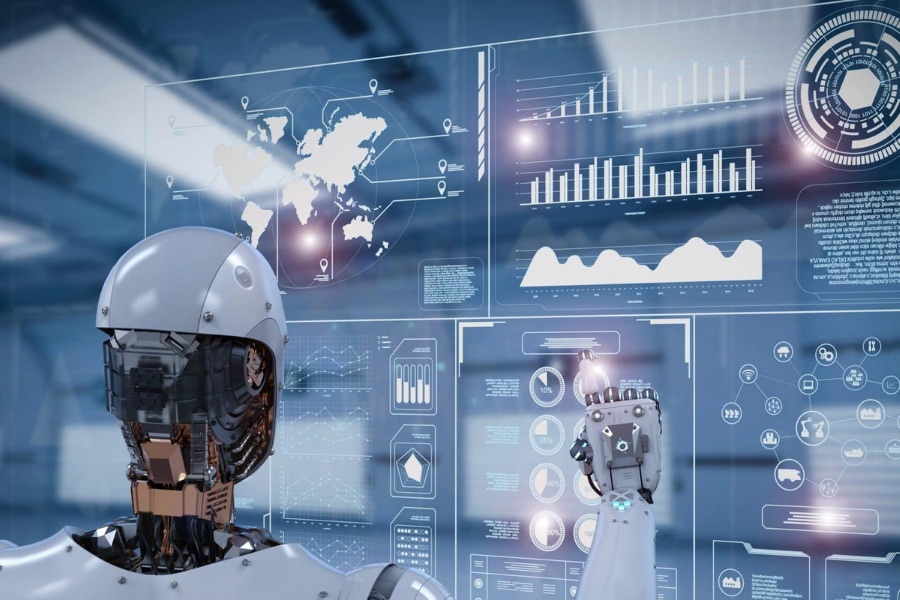Benefits of Using AI for Cyber Security
February 13, 2023, 5 min read
Artificial intelligence (AI) is a technology that is improving every day. And at the same time, Cyber-attacks are on the rise, and they are increasing day by day. However, thanks to AI’s new technology features, every company can improve its cyber security system.
Qualities like machine learning, adaptiveness, and adaptation make AI valuable for preventing all kinds of cyber threats. Let’s read this post to learn about the benefits of using AI and what it means for cybersecurity.
Machine Learning
AI decreases the vulnerability of networks through machine learning, deep learning, neural networks. These learning methods work interchangeably in AI for better information security. Thanks to these learning methods, prediction and classification of threats are possible. Also, they can optimize the data protection process. AI collects, organizes, and structures a big amount of money within seconds. So, it prepares a comprehensive report in a short period. This means that machine learning saves money and effort for companies while working efficiently. Machine learning may run through supervision, semi-supervision, or no supervision.
Decreasing the Detection and Response Times
For data protection, limitless data should be analyzed and reported. Thanks to AI, all of these pieces of information can be examined and threats can be predicted. Also, AI can detect known and unknown threats through behavioral analysis without wasting any time. The shorter incident response period that AI offers is perfect for preventing data breaches before they result in any damage. In addition, the automated measures save time and money by detecting the cyber attacks before they happen. AI constantly examines vulnerabilities in the network and makes critical decisions within seconds without human interaction.
User and Event Behavioral Analytics (UEBA)
AI’s machine learning feature has a vulnerability management system, named user and event behavioral analytics (UEBA). This system goes through a huge amount of data, detects the risks, and prioritizes them. UEBA is especially important for fighting against internal threats. This analysis system provides a multilayered and integrated data protection method. During a cyber attack, hackers behave differently than an employee, like moving laterally. In this case, UEBA detects this abnormality and protects the system. Increased incident response period is a result of this system. Thanks to UEBA, reporting and visualization, big data storage, and scalability are possible.
Network Security Strategies
For network security, AI has two strategies that prevent data breaches, which are policies, and topography. AI can apply numerous policies after the IT staff creates them. Therefore, maintaining policies is one of the ways that AI is beneficial for cyber security. In addition to that, AI efficiently offers data protection through topography. Deciding on a set of workloads among employees takes a lot of time and energy. However, thanks to this feature, efficient security policies, and workload sharings can be offered. AI makes these suggestions through comprehensive research on traffic, and workload.
Security Orchestration, Automation, and Response (SOAR)
Security orchestration, automation, and response (SOAR) is a preventative measure that doesn’t require human interaction. Thanks to the internal and external tools SOAR uses, many systems, like vulnerability scanners, firewalls, security information and event management platforms, end-user behavior analytics, endpoint protection tools can be integrated. Thus, these integrated systems work more efficiently. Also, because this system reduces human interaction in information security, it decreases human errors and internal threats caused by that. In conclusion, SOAR detects vulnerabilities, manages threats, coordinates the incident response in a short period, and optimizes the workflows. In this way, the data protection procedure becomes more efficient, and faster.
Conclusion
Artificial intelligence (AI) is a technology that simplifies the management of cyber security. Thanks to this technology’s preventative and problem-solving skills, data breaches can be avoided efficiently. Since the capabilities of AI vary in many aspects, it offers comprehensive protection against both internal and external threats. So, AI meets numerous needs of the company’s cyber security needs.
While AI can make a plan based on machine learning, deep learning, and neural networks, it also allows the IT staff to control the system through supervision, or semi-supervision. Every aspect of AI is designed for better vulnerability management and overall information security. Also, automized systems of AI, such as user and event behavioral analytics (UEBA), and Security orchestration, automation, and response (SOAR), allows the system more efficiently and reduces the incident response period. Through the light of all this information, it can be recognized that AI is a need for cyber security in the modern world where threats become more developed each day. Additionaly, when you start using AI in your current cyber security job, and adding this qualifications to your CV; you will spare a space for future in this ever-growing cyber security eco system.
FAQ
● How does AI reduce duplicative processes?
Another benefit of AI for a more efficient cyber security system is reducing the duplicating process. Sometimes, the task required for data protection has been exactly the same for a long time. And during this repetitive task, human error is inevitable. However, AI repeats this task numerous times without making a slight mistake.
● What are the ups of using AI for cyber security?
AI runs integrated systems 24/7 without any interruption. This means that it always protects data at any cost. In addition, it reduces the period of incident response. So, while it decreases the time for fighting against malicious activities, it also takes preventative cautions. In this way, data breaches can be avoided through comprehensive vulnerability analysis.
● What are the downs of using AI for cyber security?
Even though AI is becoming a need because of the improving cyber attacks, it still has some weaknesses that need to be adjusted. For the development of AI-based cyber security systems, more resources, and financial investments are required. False positives cyber-attack alert is the most common mistake of AI.
●How AI saves time for the IT staff?
While the AI-based cyber security system runs routine and repetitive tasks, the IT staff can easily focus on the tasks that require human ingenuity. Thus, AI saves both efforts of the employees and money. Besides, it can manage the workflows.
References: IBM, Rapid7 and Deloitte.




























